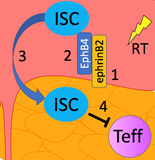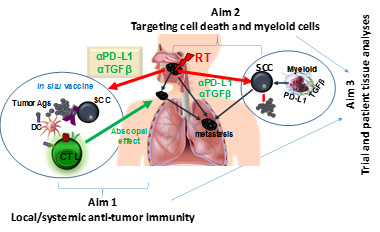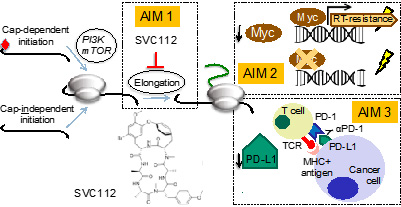Colorado Head and Neck Cancer SPORE
University of Colorado Anschutz Medical Campus
Principal Investigator(s):

Antonio Jimeno, MD, PhD

Xiao-Jing Wang, MD, PhD
- Principal Investigator(s) Contact Information
- Overview
- Project 1: Targeting EphB4-ephrinB2 to increase T cell activation in HNSCC
- Project 2: Treating recurrent HNSCC with radiation and dual TGFβ/PD-L1 inhibition
- Project 3: Targeting protein translation elongation in head and neck cancer
- Administrative Core
- Biospecimen/Pathology Core
- Data Science Core
- Developmental Research Program
- Career Enhancement Program
Principal Investigator(s) Contact Information
Antonio Jimeno, MD, PhD
Professor, Departments of Medicine/Oncology and Otolaryngology
University of Colorado Anschutz Medical Campus
120801 E 17th Ave, Mail Stop 8117, Aurora, Colorado 80045
(303) 724-2478
Xiao-Jing Wang, MD, PhD
Professor, Departments of Pathology, Dermatology, Otolaryngology
University of Colorado Anschutz Medical Campus
12800 E 19th Ave, Mail Stop 8104
Aurora, Colorado 80045
(303) 724-3001
Overview
The main goal of the Colorado (CO) Head and Neck Cancer (HNC) SPORE is to advance translational research to improve survival and quality of life for HNC patients. The CO HNC SPORE takes advantage of our expertise in basic and clinical sciences, and uses unique model systems to identify novel molecular and cellular mechanisms of HNC pathogenesis targetable by therapeutic interventions to treat all cancer types arising from head and neck anatomic sites.
Project 1 Targeting EphB4-ephrinB2 to increase T cell activation in HNSCC
Project 2 Treating recurrent HNSCC with radiation and dual TGFβ/PD-L1 inhibition
Project 3 Targeting protein translation elongation in head and neck cancer.
The Developmental Research Program is designed to attract current HNC researchers and researchers from other fields to conduct innovative research in all types of cancers arising from head and neck tissues. The Career Enhancement Program is designed to solicit junior researchers to develop research projects to transition into independent HNC researchers. We encourage qualified scientists from a broad array of demographic groups to apply for DRP and CEP projects. The CO HNC SPORE also includes Biospecimen/Pathology, Data Science, and Administrative Cores to provide support.
Project 1: Targeting EphB4-ephrinB2 to increase T cell activation in HNSCC
Project Co-Leaders:
Sana Karam, MD, PhD (Clinical Co-Leader)
Lynn Heasley, PhD (Basic Co-Leader)
This project will study if RT-upregulated EFNB2 on tumor vascular endothelial cells act preferentially to recruit EphB4+ T regulatory cells (Tregs) and monocytes (precursors of tumor-associated macrophages, TAMs) for bi-directional signaling. Therefore, blockade of EphB4-EFNB2 signaling at the tumor endothelial barrier will hinder Treg’s and monocyte’s ability to infiltrate and promote cancer cell survival or suppress Teff function. To assess the clinical applicability of the preclinical data, this project will analyze samples from HNSCC patients enrolled in a Phase I trial of the combination of an EphB4-EFNB2 inhibitor plus chemoradiation (CRT), since the study has a 2-week lead-in phase of the EphB4-EFNB2 inhibitor alone with pre- and post-therapy biopsies prior to definitive CRT.

Project 1 hypothesis. 1) RT upregulates ephrinB2 on endothelial cells (EC). 2) EphB4 expressed on immunosuppressive cells (ISC=Tregs and TAMs) binds ephrinB2 on ECs promoting 3) ISC entry into the TME and 4) T effector cell (Teff) inhibition.
Project 2: Treating recurrent HNSCC with radiation and dual TGFβ/PD-L1 inhibition
Project Co-Leaders:
Xiao-Jing Wang, MD, PhD (Basic Co-Leader)
Daniel Bowles, MD (Clinical Co-Leader)
This project will test the hypothesis that dual inhibition of TGFb/PD-L1 as a new immunotherapy combined with RT induces in situ vaccination, reverses immune suppression, and overcomes RT resistance via both T cell-dependent and -independent mechanisms. Mouse and human derived HNSCC models will be used for mechanistic studies and optimizing therapeutic regimens. This project will translate its findings to a SPORE-initiated clinical trial of the TGFb/PD-L1 dual inhibitor M7824 following RT treatment in locally recurrent and oligometastatic HNSCC patients.

Project 2: Hypothesis and aims.
Project 3: Targeting protein translation elongation in head and neck cancer
Project Co-Leaders:
Antonio Jimeno, MD, PhD (Clinical CoLeader)
Tin Tin Su, PhD (Basic Co-Leader)
This project will study protein elongation inhibition in HNSCC, identifying the key proteins targeted by the novel inhibitor SVC112, a drug discovered by Dr. Su and shown by Drs. Jimeno and Su to selectively target key oncogenic proteins such as Myc, Cyclin D1, and Sox2 in HNSCC patient-derived models. To understand the full potential of SVC112 in HNSCC, this project will investigate the distribution and prognostic impact of both the pharmacologic (eEF2) and downstream target proteins of SVC112 in a panel of up to 1,250 patient samples. This project will use in vitro models with immune cells, syngeneic models, and in vivo HM models, pioneered by Dr. Jimeno, to study if protein elongation inhibition by SVC112 impacts the TME and synergizes with RT or immunotherapy by immune-dependent and -independent mechanisms. SVC112 is in advanced stages of development and nearing clinical testing, and this project will therefore have the impact of directing a novel and promising drug to HNSCC patients.

Project 3: Hypothesis and Aims. Elongation inhibition with SVC112 will decrease proteins key for RT resistance and immune evasion.
Administrative Core
Core Co-Directors:
Antonio Jimeno, MD, PhD
Xiao-Jing Wang, MD, PhD
The goal of the Administrative Core of the Colorado Head and Neck Cancer (HNC) SPORE is to facilitate innovative translational science that will accelerate the application of new discoveries to the clinic for HNC patients. The primary objective of the Administrative Core is to provide scientific leadership, administrative services and financial oversight, and to function as a communication hub for all SPORE-related activities. The Administrative Core will support investigators and personnel in projects 1-3, the Biospecimen/Pathology Core, the Developmental Research Program (DRP), the Career Enhancement Program (CEP), and the Tissue Use Committee.
Biospecimen/Pathology Core
Core Co-Directors:
Scott Lucia, MD
Adrie van Bokhoven, PhD
The Biospecimen/Pathology Core (BPC) is essential to the success of the Colorado Head and Neck Cancer SPORE. The BPC is a central service that obtains tissues and information from patients with head and neck cancer. The collected tissue and information is stored and processed so that researchers have the best possible materials and information for their projects. In addition, the BPC provides unique skills and expertise in pathology and analysis technology to be successful in the execution of their projects.
Data Science Core
Core Director:
Dexiang Gao, PhD
The University of Colorado Head and Neck Cancer (CO HNC) SPORE Data Science Core (DSC) provides services for biostatistics, informatics, bioinformatics, and other data science related analyses. The core includes a comprehensive team of biostatisticians, bioinformaticians, and an epidemiologist, that form a hub of researchers with the common denominator of being engaged in HNC research through existing collaborations. The DSC will provide assistance with research hypotheses formulation, clinical trial designs, sample size determination, analytical and database design, data collection, analyses, management and storage. This support will continue through management and coordination of accumulating research and clinical data analyses, assistance with manuscript preparation and clinical trial reports in relation to key quantitative findings and rigorous scientific conclusions.
Developmental Research Program
Program Co-Directors:
Bryan Haugen, MD
Mary Reyland, PhD
The premise of the Developmental Research Program within the Colorado HNC SPORE application is that innovative, high-risk research from existing head and neck cancer researchers, and an influx of research from investigators with expertise outside of, but that can be applied to head and neck cancer, will catalyze significant advances in the understanding and treatment of HNC.
Career Enhancement Program
Program Co-Director(s):
Daniel Bowles, MD
Raphael Nemenoff, PhD
The Career Enhancement Program (CEP) will encourage promising candidates at the University of Colorado Cancer Center to pursue translational research careers in head and neck cancer (HNC). The CEP will provide these investigators with financial support, mentorship for scientific projects and career development, and opportunities for collaboration. The long-term goal is to foster these individuals into successful independent research careers and to incorporate them and their new ideas/projects into the Colorado HNC SPORE.







